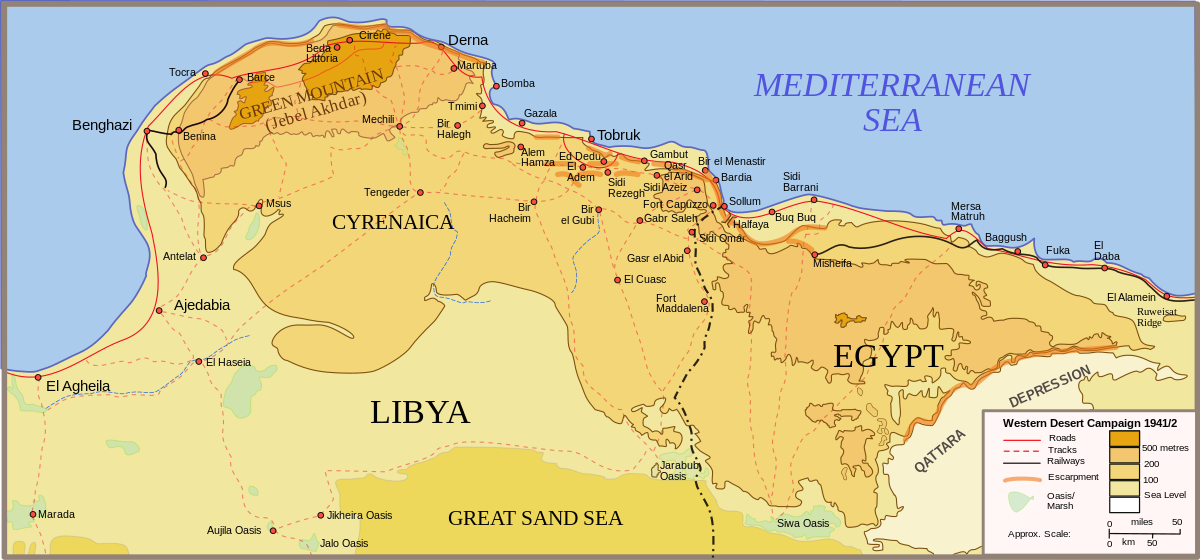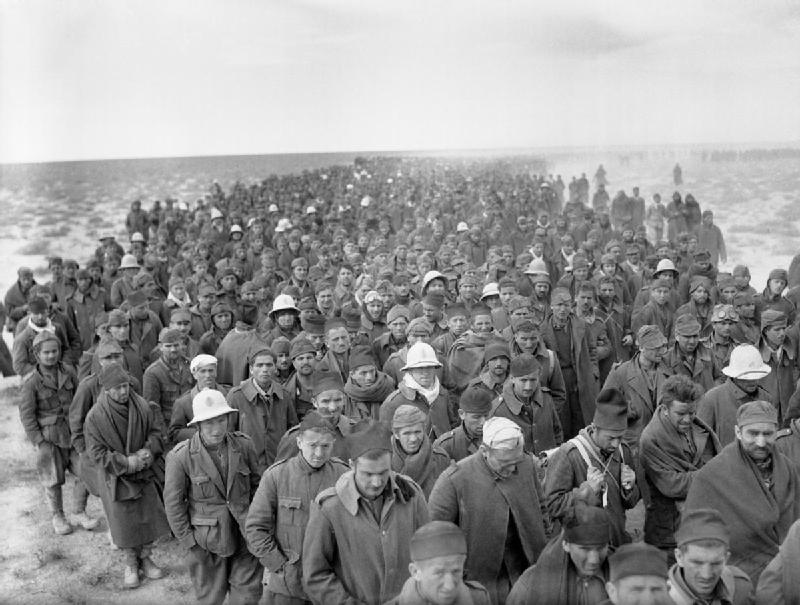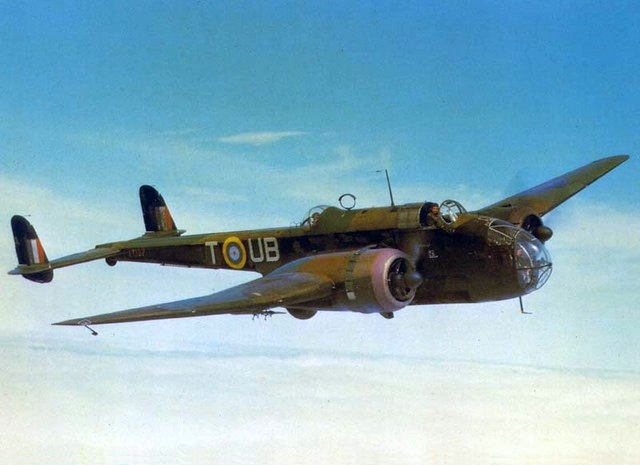Sorry for the delay, I read this and intended to get to it but life got in the way and I forgot.
No problem I was very busy yesterday especially so didn't have time to do much.
Because the Axis ports were much closer to the front than the British ones. Axis logistics don't become an issue until they hit Tobruk and don't capture supplies. I'm not trying to claim logistics aren't a problem for the Axis, so don't claim that I am, if anything you're projecting what you're doing on me, because you've done nothing but pretend logistics did not matter to the British effort, despite me quoting the British official history about how the logistical situation prevented any further advance.
That depends on where the front is. When its about central Libya then your right but when its approaching the Egyptian frontier then their definitely got problems, even at times when Britain doesn't hold Tobruk. I have never denied that logistics aren't a problem for a British advance but just pointing out that the same applies for the Axis. Probably more so in a no Greece invasion scenario since a lot of the Italian forces are going to have limited mobility.
Indeed. Question is whether they could counterattack or would remain static around El Agheila. IIRC though they still requested and got Luftwaffe support to deal with Malta, so I think that would still happen. Question is if they remain or head East for Barbarossa in June.
I would suspect that the Luftwaffe would go east for Barbarossa given it was the apple of Hitler's eye. Especially if Italy - without Greece is flooding western Libya with a lot of ground forces. If they attack their likely to run into the same problems as OTL, although probably having some success at 1st due to the numbers and British logistical problems. However their unlikely to reach as far as with Rommel.
As to the priority issue, I'm not sure where you got that impression given that the only change is Mussolini not invading Greece. That changes nothing about East Africa due to the importance of securing the Red Sea. So just not diversions to Greece, which opens up the question of what is actually kept in Libya and how soon any sort of securing of the ports could take place. Any idea what AAA resources were devoted to Greece and when? That seems to have been a major problem for getting Benghazi operational again and that was the constraint when it came to taking the rest of Libya. Of course with Malta becoming more effective it might be an issue of the British also preferring to take the 'indirect approach' of starving Tripolitania into submission rather than trying to conquer it on the ground...which lasts only so long as the Luftwaffe isn't involved. That might belatedly force the British into action.
The point is that E Africa was a relatively low priority matter. I think part of it was Churchill wanted a political response to the loss of British Somalia which he got irrationally angry about. Yes there were threats to travel through the Red Sea but the Italian forces for attacking them - air and naval were pretty feeble.
On the 2nd point you seem to be in two minds. Your arguing its pretty much impossible for the allies to take Tripoli from Egypt then saying "That might belatedly force the British into action"?? Straving Tripolitania might be the best option if invasion by the ground is logically impossible as any Luftwaffe forces sent there would themselves have to be supplied.
The usual AT stuff yes. Howitzers and artillery still worked, but that was a serious diversion of critical resources away from its intended and necessary role. The Italian situation was of course not limited to that, the Breda LMG was one of the worst MG designs ever fielded by a military, but with Compass it was just as much a supply problem and one of very bad tactics that allowed units to be isolated and starved out. When coupled with the Matilda problem it is hardly surprising that the Italian military fell apart, which is exactly what Graziani warned Mussolini about, but was told to do it anyway because the peace negotiations were "just around the corner".
Not starved out but definitely bad deployments than allowed defending 'forts' to be taken out one at a time. As you say it was a logistics problem that had prevented the Italians from advancing beyond their initial crossing of the Egyptian border. Along with some really crap equipment and the poor co-operation between the Italian services.
Aircraft carriers and drop tanks. That and surprise given the relative lack of German fighters in the region.
Destroyers were good enough even, as the Germans proved later in the war against the Soviets in the Baltic. Certainly the Allies had enough cruisers for longer range work. BBs have the longest reach and heaviest shells, but that isn't necessary to get the desired results. So long as they aren't attacking Brest or Lorient head on.
CVs are very rare in 42 as well as vulnerable, especially the US ones. Wasn't it in 1942 - or possibly 43 that the US was so short the RN leant them one of its CVs? Drop tanks have potential but also performance costs. Plus it would mean overcoming the institutional opposition to them, especially in the US military, see Drop_tank-history. Not to mention the time constrains, i.e. that unless your using continued CAPs over the entire area, which would take a hell of a lot of a/c there will be a reaction time.
For naval support that does expose the units to air attack over extended periods Also possibly raids by light surface units which the Germans had a lot of. Luftwaffe units can be moved fairly quickly, especially when faced by an invasion and don't forget that the plan assumed seizing a bridgehead and then holding it until the following late spring before a breakout so the Germans have literally months to transfer resources to attack that bridgehead. Or failing that building defences against any counter-attack.
Plus given the pressure on the allied navies in 1942 everything was in short supply. Not just CV and BB but also cruisers and escort craft.
Fighting in Libya/Egypt shouldn't tie down anything, but the Eastern Mediterranean fleet which wasn't going to be used outside the region anyway and weren't used IOTL for Torch. There wasn't much back and forth of naval units from Gibraltar to Egypt before Tunisia fell.
It would tie down a good chunk of the British army with battle experience, even more if there is concern about a Soviet collapse which means Britain is trying to build up a force in Iraq as OTL. Also without N Africa and Sicily being secured then most of any forces sent back from Egypt and their equipment is going to have a long haul back via Africa unless your going to send a hell of a lot, with very limited escort capacity, through the Med.
As to the solution for no port...both in Normandy and Sicily more supplies were landed directly on the beach than in any port due to the lack of intact port capture.
Are you including the Muleberries are 'no port landings'? Plus that is when the allies have a lot of amphibious landing experience and vastly more logistical and air power.
Butterflies due to no Greece may well change the entire situation so that there is no Stalingrad. That said I take your point. Still given the fears about what would happen if Russia quit they would risk it anyway, since that was the plan. It was a hail mary move, because without it working the war is effectively over since it would be unwinnable for the Allies alone; as much as I hate on Roosevelt for giving Stalin everything he wanted to the detriment of US interests, he wasn't wrong that without the Soviets the Wallies would have had to make peace since the price for victory would be unacceptable to Americans.
However your thinking solely from the US point of view. Accepting that its unwilling to fight Germany without the Soviets then a largely suicidal assault in the autumn of 42 is a very bad move for Britain as its very likely to lose a lot of what military it has left in a scenario when the US is talking of hanging it out to dry. What's the incentive for the UK here?
Plus if the Soviets still fall and your very confident they will do in this scenario, then its a pointless operation. Since a small bridgehead held in
Attack from the land side. That was exactly what the pre- and post-Dieppe suggestions were and how Cherbourg was taken IOTL. From the land side it is vastly easier and less costly than an amphibious assault on a defended city/port.
So forces inexperienced in amphibious assault are going to land, fight their way through any opposition, regroup and then successfully attack a defended port before enemy reinforcements arrive or the defenders use demolitions, mines etc to prevent the port facilities being used. That's making a fair number of assumptions.
Given how much effort was put into bombing sub pens in 1942 the Allies had overwhelming airpower had they opted to concentrate it.
Actually I think the really big raids by BC were against German towns/cities. However the big point is they were largely night attacks. Can't do this during the day with very limited fighter escort without losses. Plus this is still a hell of a lot less forces, with less experience available than in 44.
Given US AAA resources and the likely diversion of German bombers away from Britain they'd probably have a lot to fortify the captured port with. Artillery would only come into play if the Allies failed to seal off the peninsula. Which is probably why they'd have to suck it up and attack Cotentin since it is so close to Britain for mass air support and ease of bomber operations against transporation and it is easier to quickly attack both sides of the peninsula to seal it off before German reinforcements arrive.
If the US can/will spare enough such resources and it and related men/munitions/etc can be shipped to Britain and then across the channel to the bridgehead. Plus if artillery gets in range its going to have relatively limited effects in protecting the port against them.
North Africa not being cleared is actually a good thing for the Allies, as it forces the Axis to divert vital resources away from Europe.
However the allies have far more important assets to defend there - including control of Suez and the ME against attacks from both the west and possibly the north. Also those forces are a lot harder to transfer to a possible western front that what the Axis have in Italy/Med theatre.
That isn't really as hard as you think, especially so close to Britain. Even when the Germans broke through in Sicily naval gunfire smashed their offensive. Granted that didn't work out as easily in Normandy, but I am talking about a pincer landing on Cotentin with the terrain making it very easy to fire against any attacks against the landing zones as well as having spotting aircraft constantly hovering overhead.
In 42 its still a fair distance from Britain - just noticed not quite as far as your talking about Normandy while I was thinking you were referring to Brittany. Think the problem was the Operation Sledgehammer refers to taking Brest or Cherbourg and I forgot about the 2nd option. That does make distance somewhat less of an issue.
However even the latter is still a fair ask, let alone holding it for several months during the winter and spring. Plus your talking, with relatively weak and inexperienced forces of a double invasion which will hopefully take a port before its disabled.
The landings in the Balkans isn't the issue, it is getting beyond the beachhead due to the terrain. Again see Salonika in WW1. They literally couldn't get out of it until the CPs had literally collapsed. Every effort to push beyond the mountains was smashed and as we saw with Italy WW2 technology didn't change the problems of fighting in mountains even if it were easier to flank by landings on coastlines further north. So I have no doubt the Allies can easily take parts of or the entire nation of Greece but then you have the problem of pushing further north.
I wouldn't claim the German logistics were too restricted to get more reinforcements given that they had 300,000 men in Greece alone in 1944. That was with partisan help directing air strikes and with special operations teams on the ground. All they were ultimately able to achieve was to chew up the German retreat out of Greece thanks to bases in Italy. Without bases in Italy good luck generating sufficient sorties to matter to the logistics situation, especially give that Operation Strangle failed:
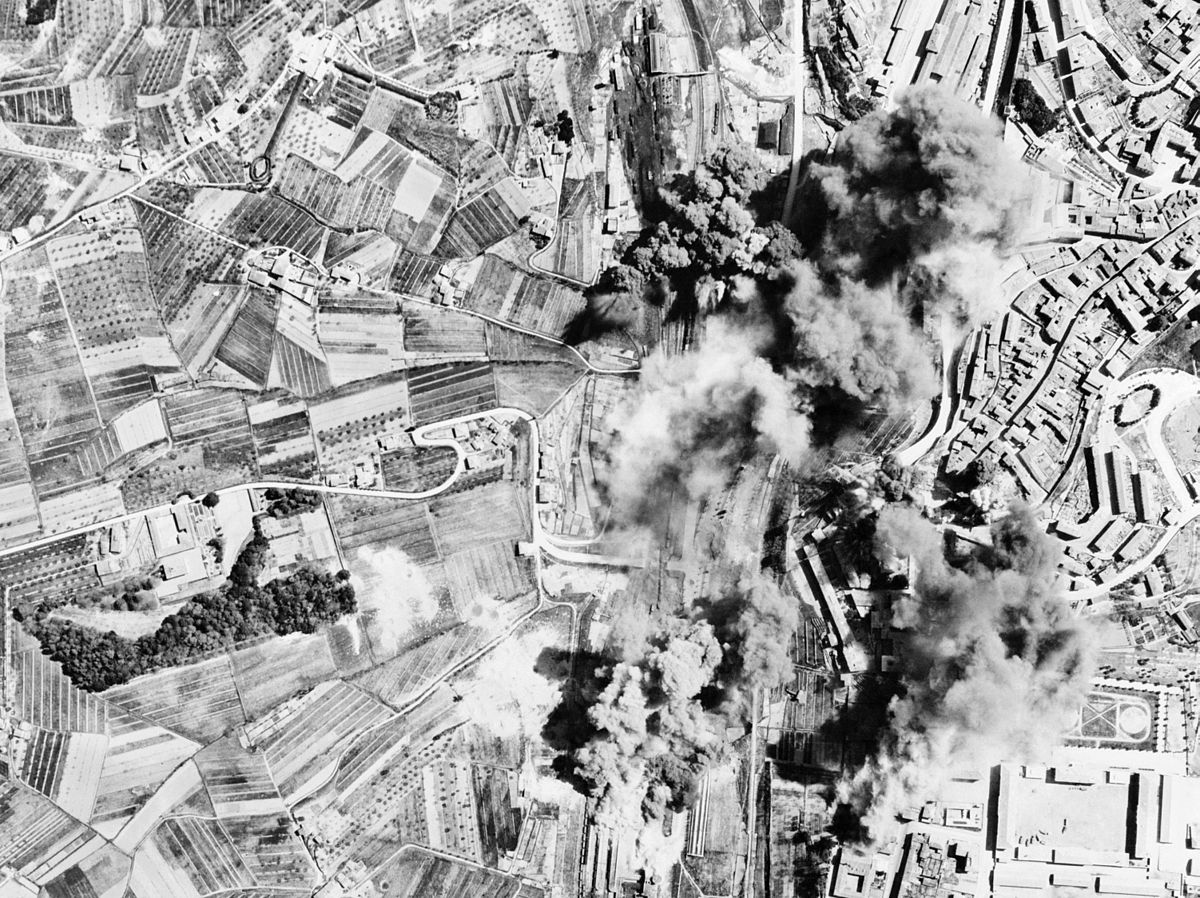
Operation Strangle (World War II) - Wikipedia
en.wikipedia.org
If you think the Balkan logistics situation was restricted, Italy was vastly easier to concentrate against, especially with two air forces available for the task.
My point wasn't that Germany didn't have forces there. It was that its more difficult for them to get additional forces to the Balkans than to France, Russia or Italy or switch between any one of them due to the logistical and terrain limitations.
Would agree it was far easier for Germany to reinforce and supply its forces in Italy because of the markedly greater railway network there.
You mean after Romania switched sides and the German position in the Balkans had collapsed. They were worried before then, but lacked the means until the Germans were basically out of men to do anything about a Bulgarian defection and the Soviets were racing through Romania.
Yes once Bulgaria realised that invasion was imminent and Germany was losing the war it switched sides before any Red Army units reached it. The same is at least as likely in the event of an allied victory in the Balkans as they would be far less fearful of western than communists occupation.
I'm not sure how that post backs up what you claim. I said invading Sicily or Sardinia would require Tunisian bases. In that quoted post I said that they could run convoys, not assault landing flotillas against Italy, through the Mediterranean if Vichy was still neutral and Libya had been cleared since they could hug the coast and avoid Sardinia and Sicily. There would still be attacks on said convoys as well as losses, but it could be done and wouldn't be much if any worse than losses in the Atlantic.
It seems there was just a misunderstanding of what I meant in the quote.
Yes. However if Vichy is neutral it could be done by hugging the coast just like the Tiger convoys, but minus having to worry about Libya. Malta then could be properly supplied and provide air cover.
Ok sounds like we were somewhat at cross purposed. Partly misunderstanding what you said and also I think the issue is whether the allies could run frequent rather than occasional convoys through the Sicily and Sardinian narrows without a strong air presence. At least when the Axis were opposing this with significant air units in those islands, not to mention possible mine and naval threats. It would be very costly to attempt this as the RN found in its missions to supply Malta.
Malta, without Tunisia in friendly hands is also vulnerable to enemy attacks, both on itself and its supply lines. Its less critical if Libya has been taken but if the Germans especially are determined to attack it by air its still going to be a pig to defend and supply.
Not really an accurate description for the Gazala Line.
Here is what happened IOTL and what is likely to have happened ITTL in 1941:
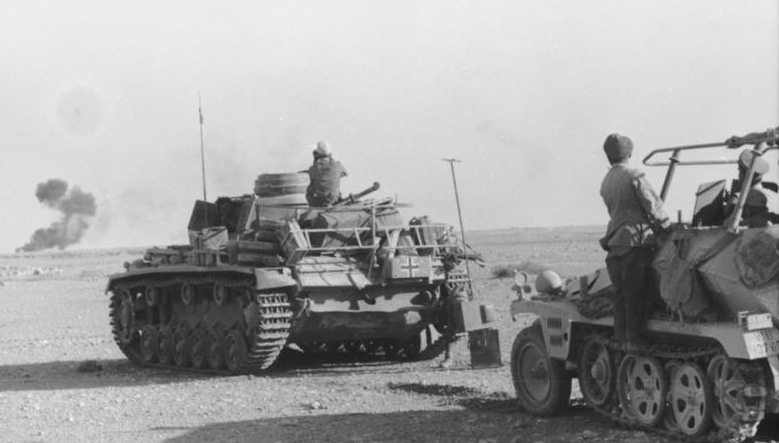
Battle of Gazala - Wikipedia
en.wikipedia.org
The British have reserves to stop Rommel at Gazala and logistics would limit his ability to do more than hold there. Potentially the Italians could do the same if they brought in all they had used for Greece and didn't ask for German help.
He'd have taken back Benghazi, so there would be some supplies coming in from there even with the DAF bombing. Given that he'd likely inflict pretty serious damage if he could advance to the Gazala Line things would likely bog down there for both sides very much like the 1942 Spring situation. Then it is a question of whether we end up seeing a 1941 analogue for the 1942 Battle of Gazala...with either side the potential victor. Rommel's numbers weren't the issue necessarily, since he largely used Italians to hold static positions and the British weren't really adept at coordinated different arms until 1942 and relied on maneuver and Die Gute Quelle:
Black (code) - Wikipedia
en.wikipedia.org
As well as SigInt:
No way the British fight better at Gazala in 1941 than they did in 1942 and certainly more armor won't help given how abysmal the service rates were for the Crusader tanks:
(the link details the problems of British combined arms as well)
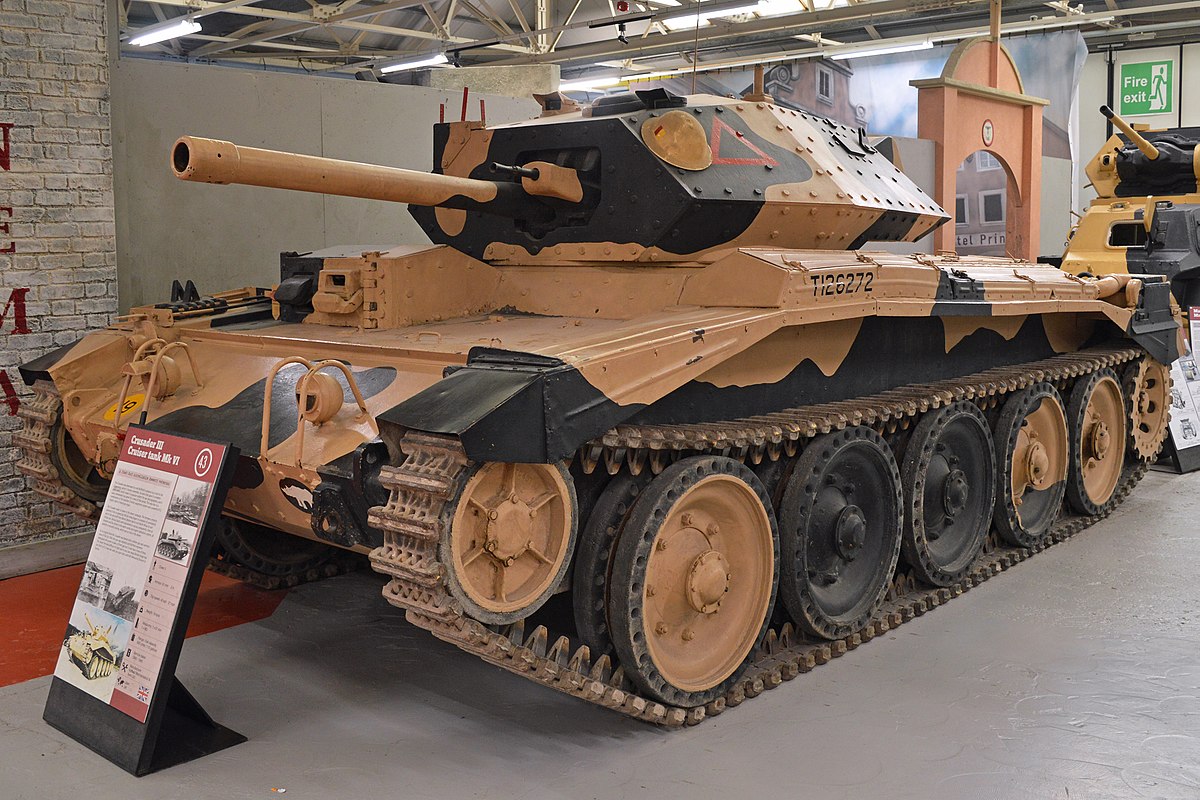
Crusader tank - Wikipedia
en.wikipedia.org
Fighting further forward than during Battle Axe or Compass would be only make the situation even worse.
More armour than the little available in spring 41 would help as would having more experience troops rather than largely exhausted units. Not losing the commanding general as they did would have helped considerably as well/
Fair enough. Point was that it could be done if needed.
And if you can afford to pay the costs.
I've got a specialized book on German FLAK and even as early as 1940 the vast investments in civil defense and FLAK defenses/ammo were causing issues for the war economy. It got worse later, but actually not by that much in 1943-44; in that period it was the damage that the bomber campaign inflicted that got worse, not the proportion of German investments in air defense...well that and the worsening of defense crews since the best men ended up in the East or later West/Italian fronts.
In 1941-42 the focus of the strategic bombing campaign by the RAF was German naval bases and sub pens, but they failed to do crippling damage due to the defenses (including sub pens, which weren't conquered until the Grand Slam bomb). Certainly coastal command could have used the bombers, but without the radar tech to go with them they'd have had a hard time being as effective as they were in 1943-44. A lot of what we know today is only in hindsight, since they didn't know their bombing of the sub bases wasn't working nearly as well as they needed. Still until the US coast opened up to Uboats the British basically were winning the Battle of the Atlantic by late Autumn 1941:
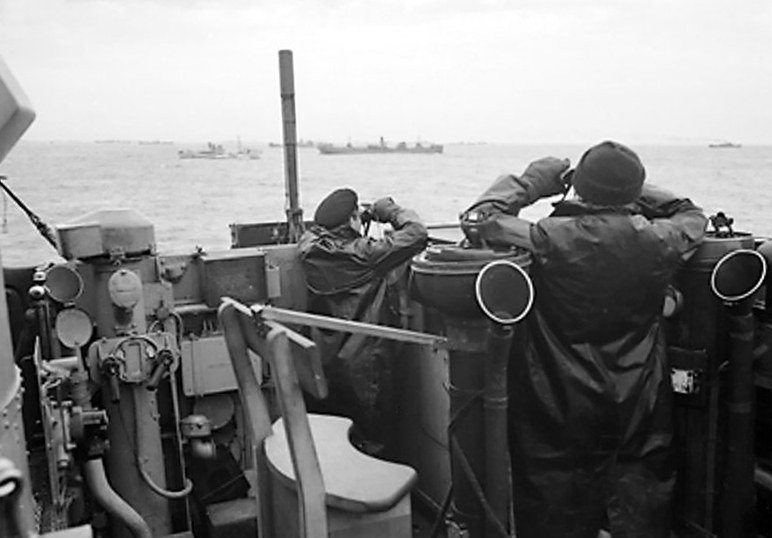
Battle of the Atlantic - Wikipedia
en.wikipedia.org
The point I'm making is that for Britain, which is far more stretched in the 41-42 period than Germany with what it can loot as well as produce for itself the resources committed to BC was a huge strain. Most nights we were losing more trained men than civilians killed/injured, let alone the relatively few times targets were being hit. A fraction of that effort in areas such as the Battle of the Atlantic would have been far more productively applied. Radar, weapons and tactics definitely improved by 44 but even having a/c in the air would have considerably restricted the U boats by forcing them to dive and move underwater more. [The U boat commander isn't going to know for sure how effective the a/c's weapons are after all]. Where they can attack boats even better or simply give warnings to divert convoys from possible sightings. The key point is that every ship saved not only saves that cargo but also makes it available for future missions.
Yes things became worse after the US and Germany were at war, in large part because the US was unready and unwilling to provide protection for convoys. The war against Japan also strained resources further even with relatively few sinking's by Japanese subs.


